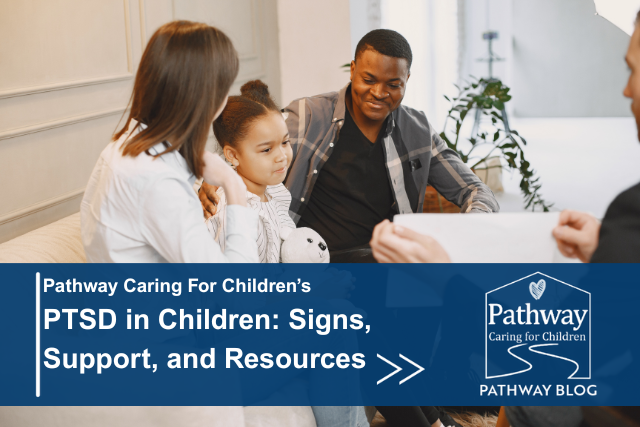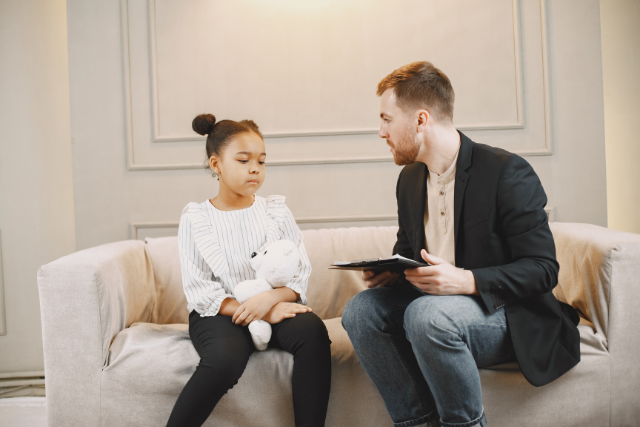
PTSD in Children: Signs, Support, and Resources for Families
When most people hear “PTSD,” they think of soldiers or adults who’ve lived through a major crisis. But the truth is, children can experience post-traumatic stress too—often from events that adults may not fully realize were traumatic.
At Pathway Caring for Children, we work with children every day who have been impacted by trauma. Whether it’s abuse, neglect, separation from family, or witnessing violence, these experiences can leave lasting emotional wounds. When those wounds begin to affect a child’s behavior, development, or sense of safety, they may be showing signs of PTSD.
The good news is that with the right support, healing is possible.
What Is PTSD in Children?
Post-Traumatic Stress Disorder (PTSD) is a mental health condition that can develop after a child experiences or witnesses something scary, dangerous, or deeply upsetting. Trauma doesn’t have to be one big event—it can also come from repeated experiences that make a child feel powerless or unsafe.
Not every child who experiences trauma will develop PTSD. But for some, the symptoms can interfere with daily life, relationships, and school.
Common Signs of PTSD in Children
PTSD symptoms may look different depending on the child’s age and personality. They may also be misinterpreted as “bad behavior” or defiance.
Here are some common signs to look for:
- Frequent nightmares or trouble sleeping
- Intense fears or phobias that seem to come out of nowhere
- Emotional outbursts, anger, or withdrawal
- Trouble focusing or learning at school
- Physical symptoms like headaches or stomachaches with no clear cause
- Reenacting traumatic events through play or drawings
- Avoiding people, places, or activities that remind them of the trauma
- A strong need for control or resistance to change
- Hypervigilance or being “on edge” all the time
If you’re noticing any of these behaviors—especially if they’re persistent—it may be time to seek support.
How Pathway Supports Children with PTSD
At Pathway, we provide trauma-informed therapy services designed to meet each child where they are emotionally and developmentally.
Our support includes:
- Individual counseling using evidence-based practices like play therapy and cognitive behavioral therapy
- Family therapy to strengthen communication and connection
- Parenting support to help caregivers respond with empathy and consistency
- Safe, calming environments where children can express themselves without fear or judgment

We also offer support for children in foster care or those who have experienced complex trauma over time.
What Families Can Do
Healing takes time, and every child’s journey is unique. But there are ways you can help create an environment that supports recovery.
- Offer consistent routines and a calm, predictable home life
- Listen without judgment and validate their feelings
- Be patient with emotional or behavioral setbacks
- Avoid punishing trauma-related behaviors—instead, focus on understanding the “why” behind them
- Ask for help when you need it—caring for a child with PTSD can be challenging, and you don’t have to do it alone
When to Seek Help
If your child’s behaviors are disrupting their daily life, relationships, or ability to learn, it’s a good time to reach out for professional support. Early intervention can make a significant difference in how a child learns to cope, heal, and thrive.
At Pathway Caring for Children, our team is here to help you navigate this process with compassion and expertise.
If you’re concerned about your child or want to learn more about our trauma-informed services, visit www.pathwaycfc.org/mental-health or contact us directly at www.pathwaycfc.org/contact. Together, we can create a path toward healing and hope.